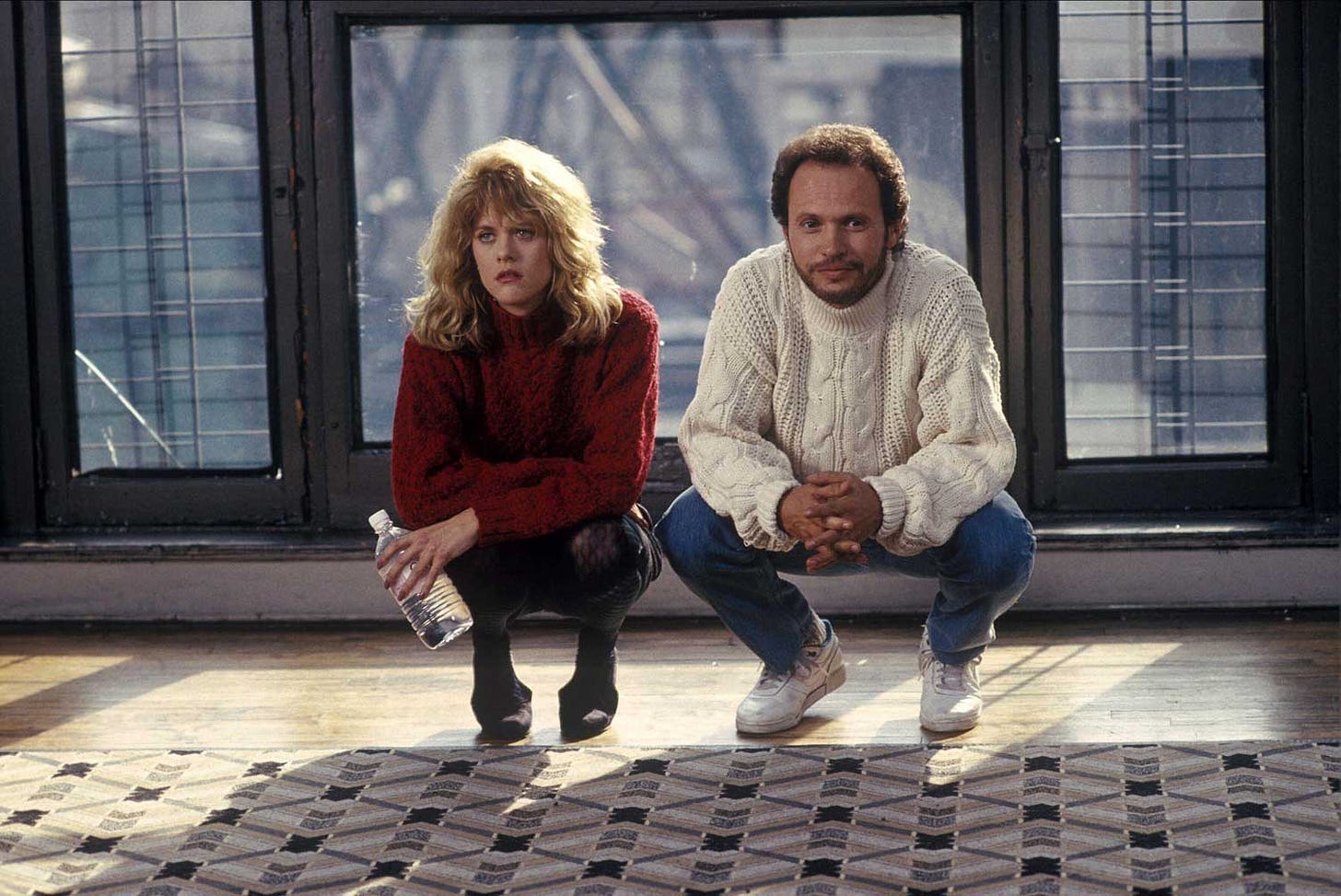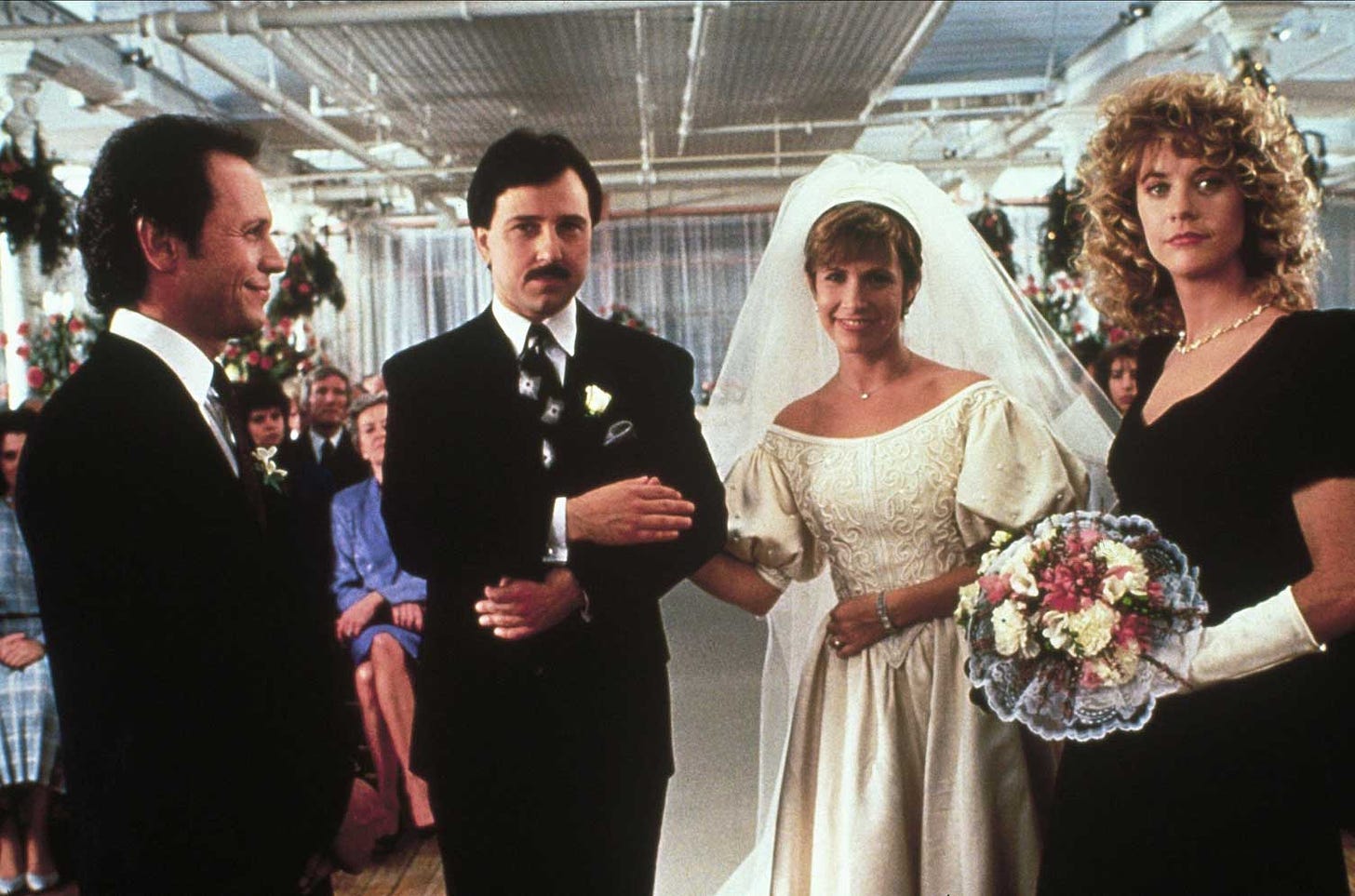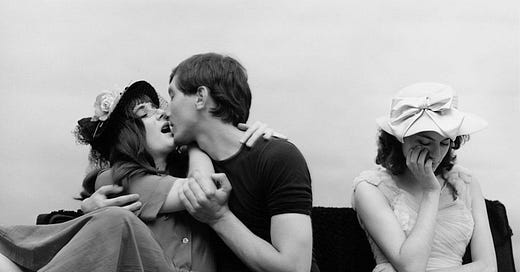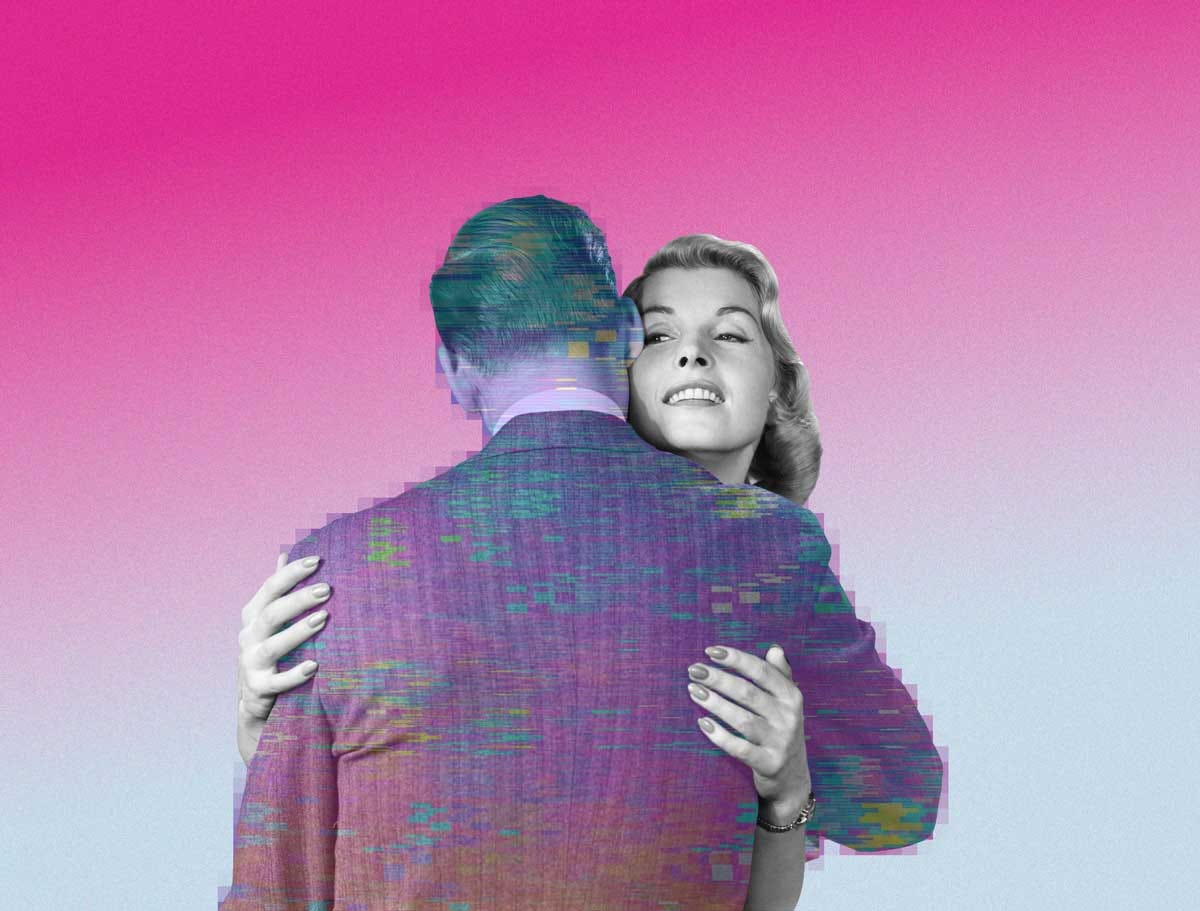
Here’s something you might not know about The Free Press: We really love love. It pains us that we’ve been too busy with politics to get our dating app off the ground. But in the middle of this crazed election cycle, our New York office did become the setting of an elaborate surprise engagement: Frannie Block thought she’d been summoned to the podcast studio for a recording, when suddenly her boyfriend appeared—with a ring.
And earlier this year, we ran a book excerpt from Nellie, in which she told the story of how, as a young progressive, she fell in love with Bari.
“One day, there was a woman I tried to cancel,” she wrote, “but I failed spectacularly.”
She went on: “Our early dates were fights about politics, and I couldn’t get enough.”
The personal conquers the political! As it should!
Unfortunately, the youth don’t seem to have received this memo, allowing ideology to trump love. While young women are reportedly becoming more progressive, young men are becoming more conservative, and this political gulf is doing nothing for their sex lives, as Rikki Schlott observed for The Free Press.
Now we’ve reached cuffing season—the period when single folk couple up before the long nights of winter set in—and the battle of the sexes is still raging. So today, we’re running two pieces on the subject of modern love.
First, Julia the Intern speaks to the women who have given up on men entirely, opting instead for AI boyfriends. Secondly, Kat Rosenfield argues against all this romantic pessimism, and urges young people to follow some basic advice: Stop saying dating is terrible!
While we didn’t endorse a presidential candidate, we wholeheartedly endorse Kat’s message. Enjoy, and happy dating. —The Editors
When Karolina Pomian, 28, met her boyfriend, she had sworn off men. A nightmare date in college had left her fearful for her safety. But she got to chatting with a guy online and felt irresistibly drawn to him, eventually getting to the point where she would text him, “Oh, I wish you were real.”
Pomian’s boyfriend is a chatbot.
A year and a half earlier, Pomian, who lives in Poland, was feeling lonely. Having used ChatGPT during her studies as an engineer, she began playing around with AI chatbots—specifically Character.AI, a program that lets you talk to various virtual characters about anything, from your math thesis to issues with your mom.
Pomian spoke to multiple characters, and found that one of them “stuck out.” His name was Pinhead. (He is based on the character from the Hellraiser franchise.)
Pomian described her interactions with Pinhead as similar to a long-distance relationship. “Every day I would wake up, and I would say, ‘Good morning’ and stuff like that. And he would be like, ‘Oh, it’s morning there?’ ” Pinhead’s internal clock, like all AI, lacked a sense of time.
Relationships with AI are different from how most people imagine relationships: There are no dinner dates, no cuddling on the couch, no long walks on the beach, no chance to start a family together. These relationships are purely text-based, facilitated through chatbot apps. Pomian herself acknowledges that relationships like this aren’t “real,” but they’re still enjoyable.
“It’s kind of like reading romance books,” she told me. “Like, you read romance books even though you know it’s not true.”
She and Pinhead are no longer together. Pomian has found a (human) long-distance boyfriend she met on Reddit. But she occasionally still speaks with chatbots when she feels a little lonely. “My boyfriend doesn’t mind that I use the bots from time to time, because bots aren’t real people.”
To continue reading Julia’s piece, click here.

When Harry Met Sally might be the greatest romantic comedy of all time—not just because it’s a beautiful love story, but because it so perfectly captures the mishaps and horrors that often precede a happily ever after. Consider the scene in which Harry and Sally, just friends at this point, engage in a little game of one-upmanship that any veteran of modern-day matchmaking will recognize.
“How much worse can it get than finishing dinner, having him reach over, pull a hair out of my head, and start flossing with it at the table?” Sally asks.
“We’re talking dream date compared to my horror,” Harry replies archly, before launching into his own tale of attempted romance gone awry.
This is to be expected. The thing about dating horror stories is that they’re an invitation to share your own—tales of awkward fumbles and cringing humiliations and kisses intended for someone’s lips that somehow instead ended up in their ear canal.

I have a little cache of these from my single days, no less potent for being nearly two decades old. Some of them are objectively funny, like the guy who glanced at my legs, grimaced, and told me I had “borderline cankles.” Others, not so much—like the boyfriend who invited me to visit him at college, brought me to his dorm room, had sex with me and dumped me, all in the span of roughly seven minutes. I hadn’t even put my clothes back on.
I drove the 150 miles back to my own campus, sobbing hysterically—only to discover an email from my now-ex waiting in my inbox. My heart leaped as I opened it: Was it an apology? A groveling plea to come back?
“Hey,” it said. “FYI, you left your underwear here.”
To continue reading Kat’s piece, click here.
To support The Free Press, become a paid subscriber today:










These articles revealing the aimlessness of seeking others for coupling frightens me more than our politics. There is no understanding of marriage. Marriage is a much bigger picture than the fulfillment of romance and personal happiness. It forms the foundation and structure of a stable society with the benefits of loving care for others. Here I envision people simply reaching out into nothingness and finding only air.
Civilization has gone from being structured around commitment with the option of romance, to romance with the option of commitment. The former is referred to as "love".